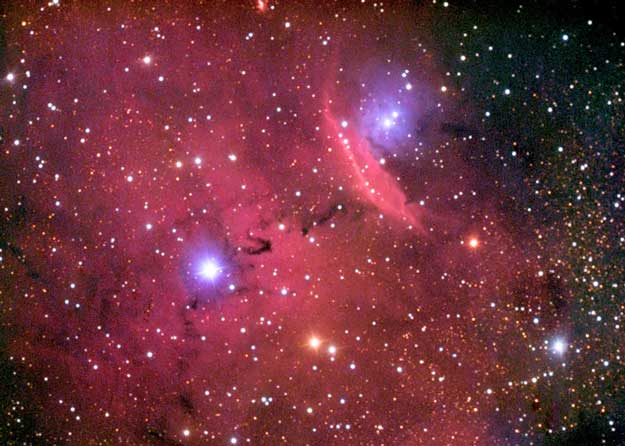
|
Credit: Robert Gendler
Explanation:
Bright gas and dark dust permeate the space
between stars in a nebula known as
NGC 6559.
The gas, primarily
hydrogen, is responsible for the diffuse red glow of the
emission nebula.
As energetic light from neighboring stars ionizes
interstellar hydrogen,
protons and
electrons recombine to emit
light of very
specific colors, including the
red hue observed.
Small dust particles
reflect blue starlight efficiently and so creates the blue
reflection nebulosity
seen near two of the bright stars.
Dust also absorbs visible light, causing the
dark clouds and
filaments visible.
NGC 6559 lies about 5000 light-years away toward the constellation of
Sagittarius.
|
January February March April May June July August September October November December |
| ||||||||||||||||||||||||||||||||||||||||||||||||
NASA Web Site Statements, Warnings, and Disclaimers
NASA Official: Jay Norris. Specific rights apply.
A service of: LHEA at NASA / GSFC
& Michigan Tech. U.
Based on Astronomy Picture
Of the Day
Publications with keywords: reflection nebula - emission nebula - NGC 6559
Publications with words: reflection nebula - emission nebula - NGC 6559
See also:
